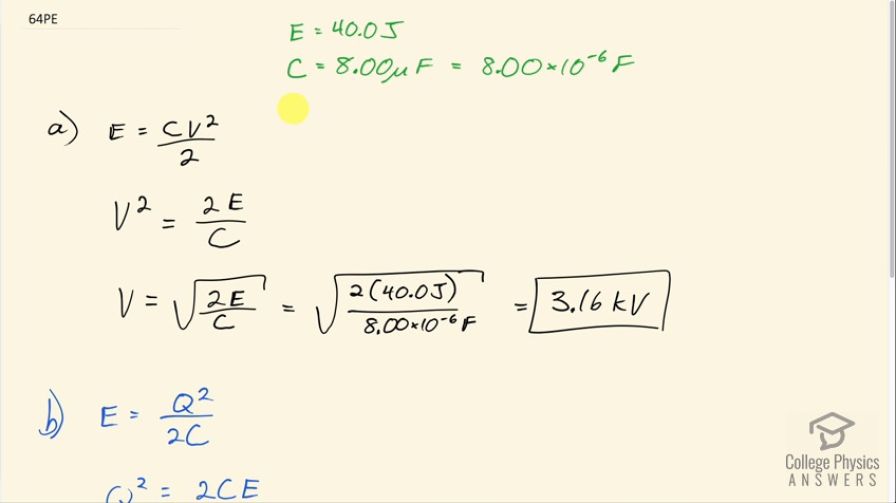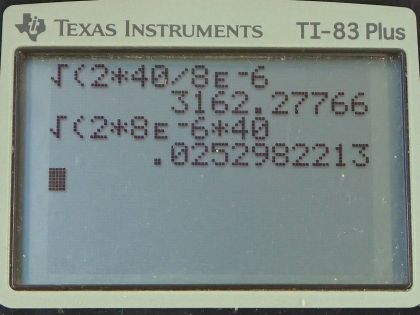Question
In open heart surgery, a much smaller amount of energy will defibrillate the heart. (a) What voltage is applied to the capacitor of a heart defibrillator that stores 40.0 J of energy? (b) Find the amount of stored charge.
Final Answer
Solution video
OpenStax College Physics, Chapter 19, Problem 64 (Problems & Exercises)

vote with a rating of
votes with an average rating of
.
Calculator Screenshots
Video Transcript
This is College Physics Answers with Shaun Dychko. During open heart surgery, the defibrillator does not need as high a voltage as it does when there is, you know, skin and other parts of the body in between the heart and the defibrillator. So the energy stored in the defibrillator is 40.0 joules and its capacitance is 8.00 microfarads and the question is, what is the voltage in part (a)? So the energy stored in a capacitor is its capacitance multiplied by voltage squared divided by 2 and we can solve for V squared by multiplying both sides by 2 over C and then take the square root of both sides to solve for V that's square root of 2 times the energy divided by capacitance. So that's square root of 2 times 40.0 joules divided by 8.00 times 10 to the minus 6 farads which is 3.16 kilovolts. In part (b), we are asked how much charge is stored in this capacitor? So an alternate expression for the energy stored in the capacitor is the amount of charge squared divided by 2 times the capacitance. So we will solve for Q squared by multiplying both sides by 2C and then take the square root of both sides so Q is the square root of 2CE. So that's square root of 2 times 8.00 microfarads times 40.0 joules which is 2.53 times 10 to the minus 2 coulombs.
